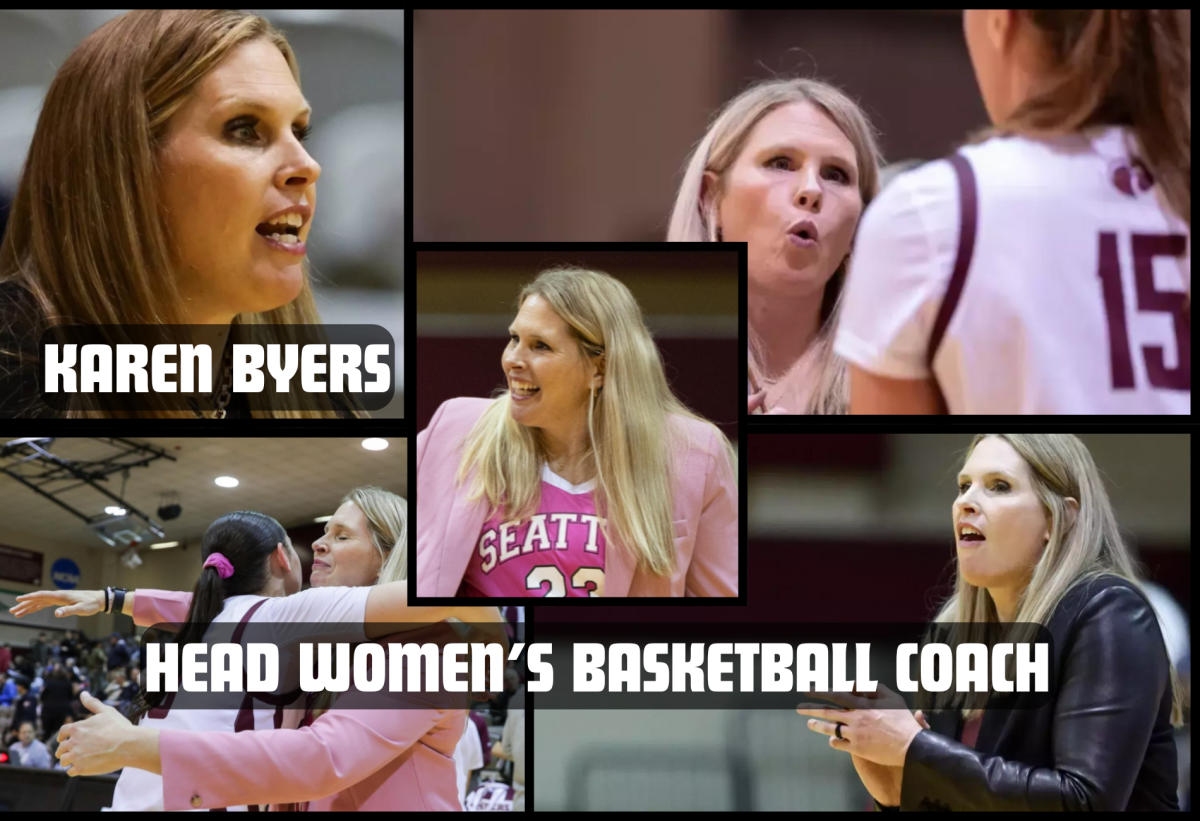
When an athlete is in a slump or having a tough break, a ravishing sports film could set them back on the right track.
These films, shared and selected by Seattle Pacific University athletes, are considered among the most motivational, uplifting and inspirational sports stories to watch.
1. “Remember the Titans” (2000)
Summary: The new head football coach, Herman Boone is forced to unite a team of players from different racial and social backgrounds as they learn to respect and support each other.
Freshman psychology major Jonathan Lieb, who runs the 800-meter and one-mile events for the men’s track and field team, regularly rewatches the film for inspiration and motivation.
“It’s a great film [about] people overcoming issues [within and] outside of the sport when it comes to so many different problems. It’s nice to watch a movie tackle those issues and have a positive effect on their performance. [It shows] there’s more aspects to [sports] than just your physical performance,” Lieb said. “It goes a long way when you tackle everything outside of sports first [and] get your priorities straight.”
Lieb is most drawn to the film because of its portrayal of the team’s dynamic.
“They all work well with each other throughout because they’re all overcoming obstacles together. They’re not just playing together, they’re dealing with so many different things at the same time, and they’re doing it together,” Lieb said. “It [especially] draws me in because you can watch their dynamic forming throughout the whole film. It’s cool because it’s so comparable to actual life.”
2. “Miracle” (2004)
Summary: Coach Herb Brooks brings up a ragtag hockey team of college kids against the favored team from the Soviet Union at the 1980 Olympic Games.
The assistant coach for track and field teams Chris Hansen appreciates the life lessons and authenticity of O’Connor’s film.
“It is based on a true story and does a good job of conveying the message that anything is possible when you’ve got the right group of people together,” Hansen said. “It also shows the importance of team culture and being an unselfish teammate and showing how that can help a team succeed.”
Hansen values the mentality the film conveys. He tries to apply it to his life and his coaching.
“The biggest mentality point I use from that movie is: you could be up against the toughest competition out there, they might have all these big wins and everything, but they still need to beat you on that day,” Hansen said. “If you have enough confidence that you could compete with anybody, you still have a shot.”
3. “McFarland, USA” (2015)
Summary: Recently settled into McFarland, California, Jim White discovers buried potential in several high school boys and slowly coaches them into championship cross country runners.
Freshman rower Naomi Collins, a political science major, appreciates the underdog story.
“This one character, Danny Diaz, was a short plus-sized kid who people thought couldn’t run fast. I love how he proved everyone wrong with his shape,” Collins said. “He didn’t have to become skinny and fit or have a huge transformation story. He had what it took, game knows game, and he went out and did it.”
Collins most identifies with the film’s message about heart and effort.
“There’s no excuses. Hard work beats talent. If you put in the work and enough grit, then you’ll get where you need to go,” Collins said. “They tried their hardest [in the film] and they were fruitful because of it. I like the idea that you might not get first place, but you’re trying. All that matters is that you’re giving all your heart.”
4. “Glory Road” (2006)
Summary: Coach Don Haskins leads the first basketball team with an all-black starting lineup to the 1966 NCAA championship.
The film’s historical setting and recognition of racial tensions were what initially drew Collins to this film.
“I grew up in the south, and it’s cool to see the roles racism, segregation and post-Jim Crow laws played within basketball only 50 years ago,” Collins said. “Seeing the treatment of people of color [in that time] is insane.”
As a novice to rowing, Collins carries the film’s lessons about teamwork with her in the boat.
“The team is fully mixed with black and white students, and by the end of the movie, they learn how to play as a team, how to be friends and how to be a family,” Collins said. “Going into rowing, which is a team sport, I had to learn how to be a team player and put all my assumptions and biases aside. Having to be like, ‘You’re my teammate, that automatically makes you my family,’ really struck a chord with me when I watched the film.”
5. “Cool Runnings” (1993)
Summary: Four Jamaicans form their country’s first-ever bobsled team to compete in the 1988 Winter Olympics.
Gem Gatmaytan, a sophomore rower and exercise science major, sees her journey reflected in the film’s story.
“I am able to connect it back to my experience as a Filipino in rowing, which is a white male dominant sport in the Pacific Northwest,” Gatmaytan said. “It motivates me to do my best and to try and open up the sport to people like me.”
Gatmaytan hopes to follow suit from the film’s characters and become an inspiration to others.
“The resilience the athletes have in not letting their skin color define them, letting their performance tell other teams and countries that they’re good at the sport and they belong there,” Gatmaytan said. “I started rowing back in the seventh grade, and it was intriguing to see myself and one other person be the only people of color. Rowing gives me a platform to extend a hand out to other people of color who are also young and debating whether they want to keep rowing when they don’t see other people of color.”
The beauty of most sports films is that they are based on true stories. Successes of past athletes are like data in research — they support the scenario of someone else later down the line succeeding as well. The common denominator is the athletes kept going, kept taking the hits and kept moving forward.
“If you love it enough, then you’ll stay with it, no matter what anyone else says to you,” Gatmaytan said. “If you put enough effort into it and not let [anyone else] tell you otherwise, then you’ll stay consistent in doing the best you can.”


















































































